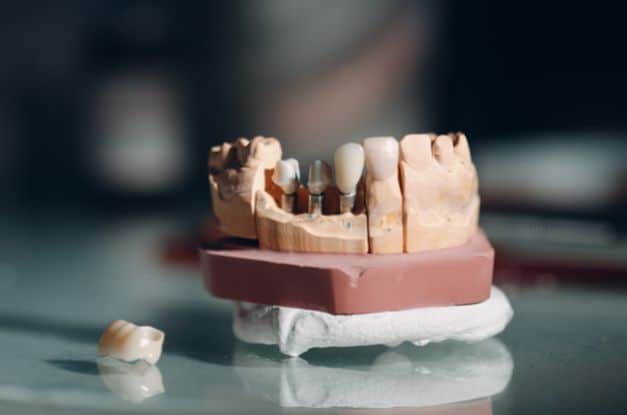It’s important to take care of your body, especially as you get older. Aging has great impact on the body: muscles weaken, skin sags, and teeth are more sensitive. More specifically, if you notice more challenges eating or drinking, it’s time to call the dentist. They may recommend any of these most common dental procedures to fix your teeth.
Teeth Whitening
Teeth whitening procedures are not just for A-list celebrities. Similar to a cleaning, whitening is a painless procedure, although you may be sensitive to the whitening products. Basically, this procedure is as its name suggests: to whiten the enamel and give a bright, shiny new smile. Teeth can stain over time due to various foods and substances, like coffee, tobacco, and wine. Dental hygienists will use a bleaching agent along with a hydrogen peroxide gel to remove discoloration and promote faster whitening.
Dental Implants
Dental implants are another common procedure. For those missing teeth, implants allow for a brand-new artificial replacement. Oral surgeons implant a screw to act as the implant’s root. Then, they’ll secure it with titanium or other base material along the gum and jawbone. The artificial tooth will look and feel like a natural one. You may also want to ask about implant-safe crowns and dentures.
Dentures
Speaking of which, dentures are all too common among the aging populace. Many people, both young and old, need dentures. Best of all, they’re removable and easy to clean. The fitting process is quite simple. Your dentist will take a mold of your mouth using wax blocks to see how your teeth will secure in your mouth. Then all you need to do is wait until they’re manufactured. Make sure your dentures fit well, or else you may feel some discomfort. Ill-fitting dentures are uncomfortable and cause gagging and a possible choking hazard.
Crowns
Crowns are the other most common dental procedure to fix your teeth. Dental crowns protect open cavities. Dentists use crowns after filling the cavity to protect the tooth and ensure the cavity doesn’t further develop. Crowns are also beneficial for tooth decay. Ask your dentist if a crown is suitable for you. They’ll take a mold of your tooth to craft a perfectly fitted crown.






